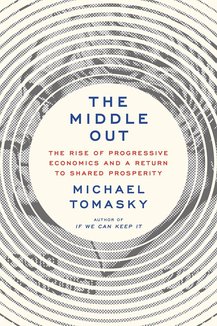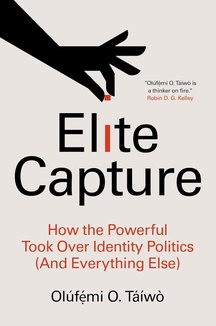Recommended Books

The Middle Out: The Rise of Progressive Economics and a Return to Shared Prosperity
Author:
Michael Tomasky
ISBN 13:
978-0385547161
Political journalist Michael Tomasky tracks an exciting change among progressive economists who are overturning decades of conservative dogma and offering an alternative version of capitalism that can serve broadly shared prosperity to all. "Engaging, briskly paced ... On balance, history appears to be on Tomasky’s side." —The New York Times Book Review In the first half of the twentieth century the Keynesian brand of economics, which saw government spending as a necessary spur to economic growth, prevailed. Then in the 1970s, conservatives fought back. Once they got people to believe a few simple ideas instead—that only the free market could produce growth, that taxes and regulation stifle growth—the battle was won. The era of conservative dogma, often called neoliberal economics, had begun. It ushered in increasing inequality, a shrinking middle class, and declining public investment. For fifty years, liberals have not been able to make a dent in it. Until now. In The Middle Out , journalist Michael Tomasky narrates this history and reports on the work of today's progressive economists, who are using mountains of historical evidence to contradict neoliberal claims. Their research reveals conservative dogma to be unfounded and shows how concentrated wealth has been built on the exploitation of women, minorities, and the politically powerless. Middle-out economics, in contrast, is the belief that prosperity comes from a thriving middle class, and therefore government plays a role in supporting families and communities. This version of capitalism--more just, more equal, and in which prosperity is shared--could be the American future.

Elite Capture: How the Powerful Took Over Identity Politics (And Everything Else)
Author:
ISBN 13:
978-1642596885
“Identity politics” is everywhere, polarizing discourse from the campaign trail to the classroom and amplifying antagonisms in the media, both online and off. But the compulsively referenced phrase bears little resemblance to the concept as first introduced by the radical Black feminist Combahee River Collective. While the Collective articulated a political viewpoint grounded in their own position as Black lesbians with the explicit aim of building solidarity across lines of difference, identity politics is now frequently weaponized as a means of closing ranks around ever-narrower conceptions of group interests. But the trouble, Olúfẹ́mi O. Táíwò deftly argues, is not with identity politics itself. Through a substantive engagement with the global Black radical tradition and a critical understanding of racial capitalism, Táíwò identifies the process by which a radical concept can be stripped of its political substance and liberatory potential by becoming the victim of elite capture—deployed by political, social, and economic elites in the service of their own interests. Táíwò’s crucial intervention both elucidates this complex process and helps us move beyond a binary of “class” vs. “race.” By rejecting elitist identity politics in favor of a constructive politics of radical solidarity, he advances the possibility of organizing across our differences in the urgent struggle for a better world.